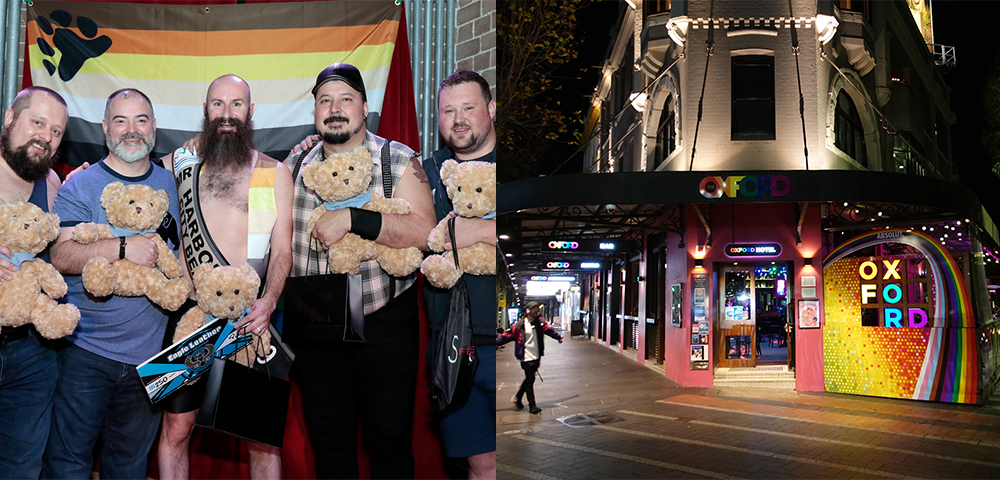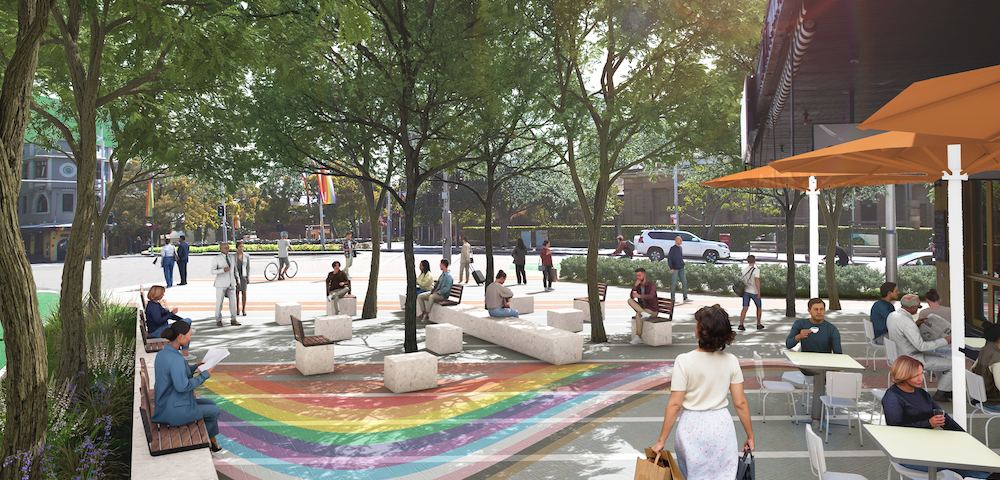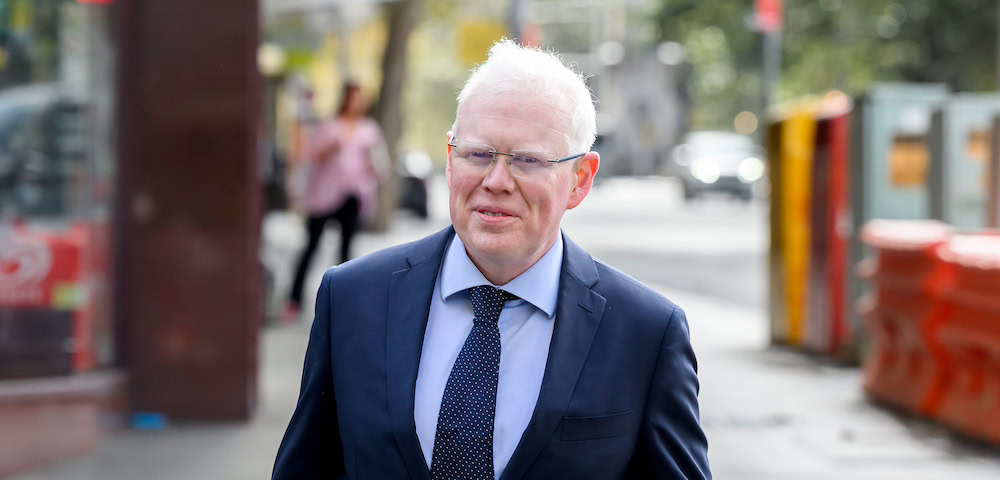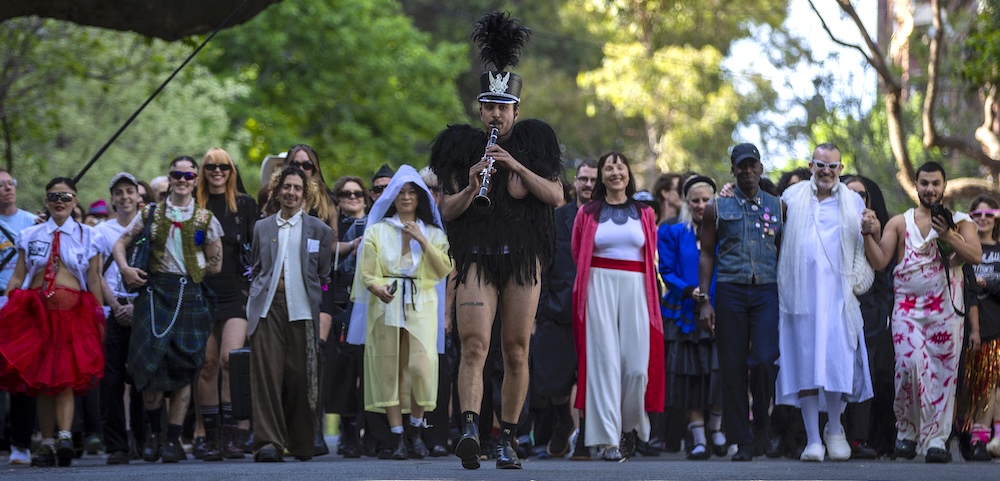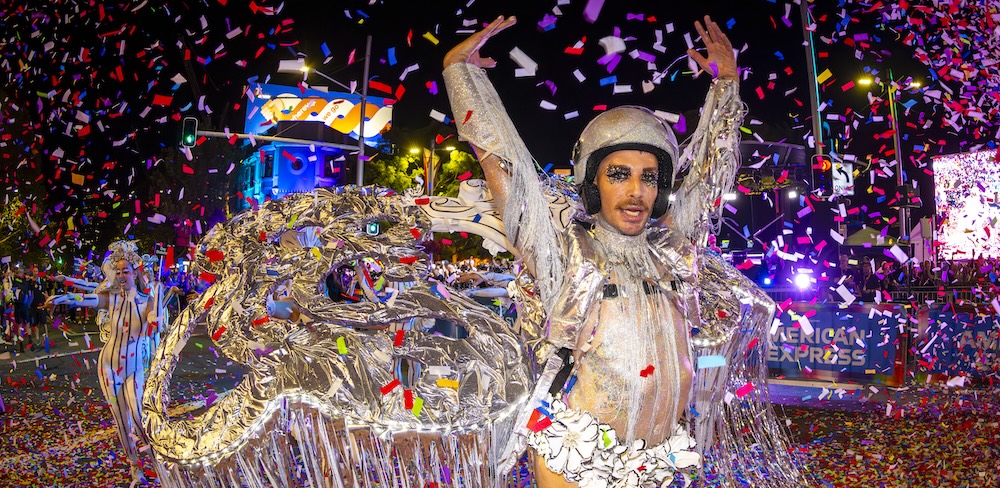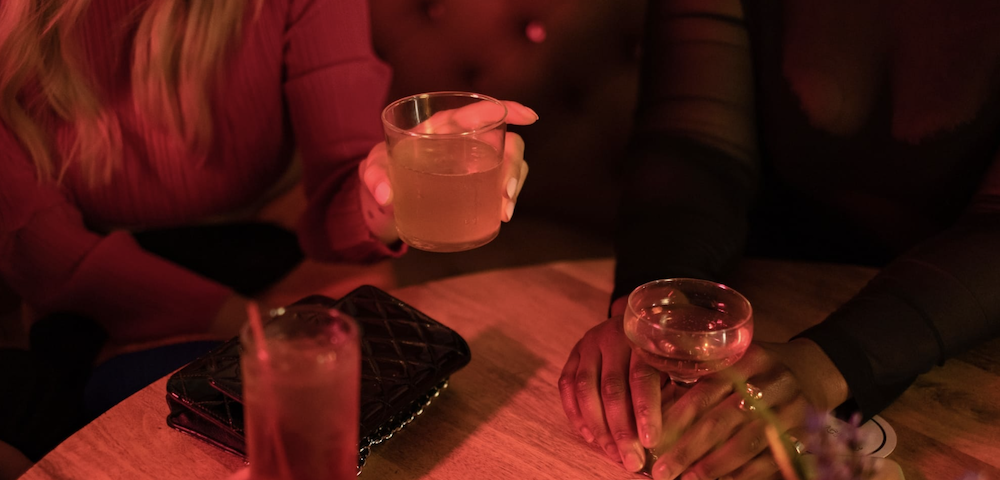
Closing the gap
This year saw the twenty-year reunion of women who protested against the US nuclear base at Pine Gap.
It was quite a speech on 11 November 1983 and it’s quite a speech today, even if the speaker Biff Ward claims to have become less fundamentalist in her politics.
Our women’s perception, our women’s vision, our women’s analysis is crucial to the movement to save the planet, Ward said, reprising her speech at the 20-year reunion of her activist sisters. Just as Aborigines -¦ see the great white arse of racism in all its pimply glory, so too the women as women see the white male arse of the true ruling class: patriarchy.
The key organiser of the reunion Georgina Abrahams sat behind Ward on the stage with a quiet smile. Abrahams was one of a group of 800 women who travelled to the middle of the desert in 1983 for two weeks, protesting against the US nuclear base at Pine Gap. It was the height of the Cold War and the base also caused outrage because of the callous disregard of the indigenous people displaced (again) by a new, American invasion.
We saw it then and still see it as a nuclear target -¦ Abrahams explained later, asserting that most of the women in the group were lesbians. We were scared. We used that fear in a creative way, to motivate us, to draw women -¦ to come together and do something that was powerful.
Around a hundred women attended the Jessie Street National Women’s Library Pine Gap Reunion at Parliament House, drawn from a variety of feminist activist groups from around the country. There was singing, a picnic, the hanging of banners and a very 1980s display -“ a mural made from sloganned T-shirts worn in the desert. (Abrahams proudly wore hers to the reunion.)
It was a low-key event compared to the national attention the group and their allies garnered 20 years ago. Abrahams said their goal then was to draw attention to themselves. We were on the front page of the paper and on television stations around the country for the whole two weeks, Abrahams smiled.
Sandy Thompson was an activist in 1983 and now works as a kitchen designer, although you’ll still find her at protest marches. For Thompson it was a time of personal fulfilment, as well as one of serious political conviction.
I sang at a policewoman. I was just so young and was honestly, passionately singing to this woman, Thompson said, almost incredulous at her former self. We were face to face with the police -“ because we’d pulled down the gate, she laughed, so they had to form a police line as a gate. So I was singing to this policewoman and she wouldn’t look me in the eye and eventually she had tears in her eyes. She’d been there every day, but then she didn’t come back.
Then they put up a gate so we put up a sign -˜Congrats boys on your hasty erection!’ Thompson laughed.
The seasons have changed, a fact acknowledged with a certain shrug by some speakers and defiantly challenged by others.
Nancy Shelly wore a pith helmet when she spoke at the Pine Gap gates, a recent convert to political protest then aged in her 60s.
Pithed again, Shelly told the crowd peace was still possible. Shelly took the radical approach at the protest of ringing the Australian head of Pine Gap and going on a date with him (in a sense). The enemies chatted for two hours, during which she advocated the power of female solidarity. There was fear in his eyes, recalled Shelly, now in her 80s.
For Biff Ward change has not necessarily been for the worse. One of the really good things about post-modernism … is the understanding that we have to listen to many voices, Ward told the crowd. Because back then I was pretty tunnel-visioned. I had the answers, and I think a lot of us felt like that. Now we feel more receptive to a lot of different input.
I thought we were going to really stop it all. I really believed we could stop war. Not just nuclear, but war the whole thing. I now know it’s not going to happen in my lifetime and I certainly can’t do it, Ward said.
Abrahams wasn’t giving up, but wants to ask questions of the community.
Do we still believe that we can make a difference in the world? she said. Twenty years ago we believed that we could make a difference. I’m concerned that sentiment isn’t as deeply felt, she said.




